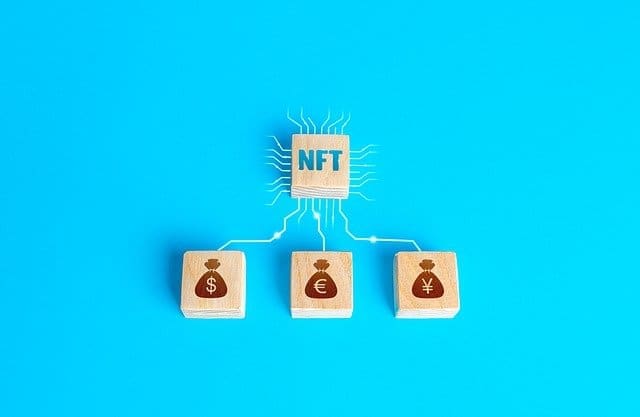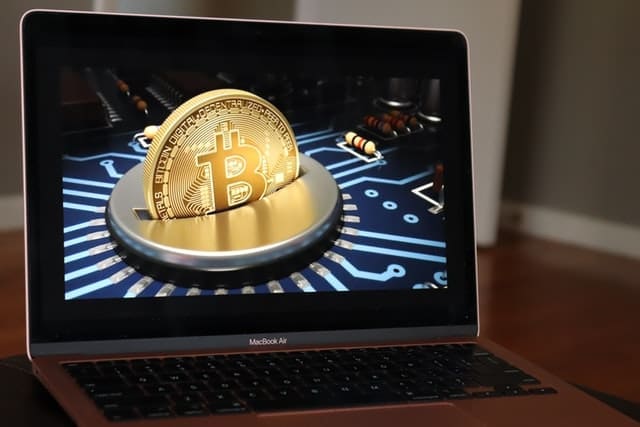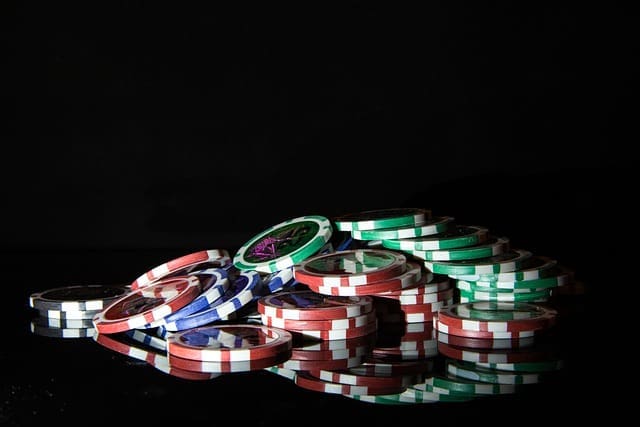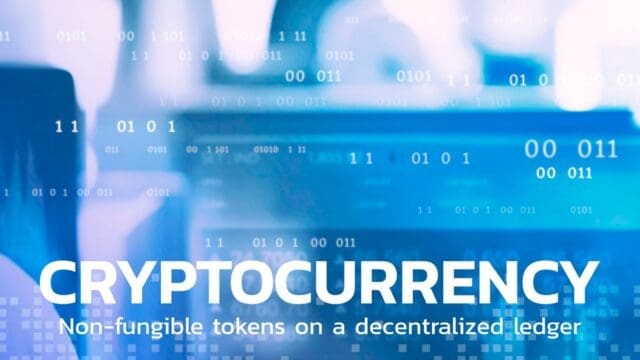Some people say that NFT gambling could present a new chapter in the online gaming industry. Generally, the gaming industry is undoubtedly a lucrative, multi-billion dollar sector that giant corporations like Nintendo, Microsoft, and Sony have traditionally dominated for years. Such companies have provided gaming experiences that attract players while expanding their overall market share in online gaming history. But non-fungible tokens or NFTs provide gamers with the financial incentive to play different games in NFTs form. Additionally, they offer a more engaging gaming ecosystem.
Also called play-to-earn or P2E games, these options allow gamblers to play in a Meta-verse that’s primarily a fictional universe. P2E gaming models dictate that the platform rewards users financially for their effort and time in the game. Consequently, this model will likely acquire a part of the $175.8 billion worldwide gaming market. Experts tout this market to grow and exceed the $200 billion mark in 2024.
What Is NFT?
NFT refers to Non-Fungible Tokens. These tokens are the latest crypto phenomenon today. They transform a collectible or artistic digital work into a verifiable, one-of-a-kind asset that a person can easily trade on the blockchain.
NFTs are digital content pieces linked to the blockchain. The blockchain is a digital database that underpins cryptocurrencies like Ethereum and Bitcoin. Today, an online casino that pays in cryptocurrencies can allow users to withdraw or fund their accounts with Bitcoin or Ethereum.
While this definition may not be easy for everyone to understand, NFTs payoff has been significant for many musicians, artists, and influencers. Investors are also spending a lot of money to own digital images in NFT versions.
For instance, Jack Dorsey sold the first tweet for $2.9 million. LeBron James slams drunken video clip sold for more than $200,000. A GIF of a “Nyan Cat” aged ten years fetched $600,000.
Cryptocurrencies like Bitcoin are fungible assets, meaning users can exchange or replace them with identical items of similar value. That’s why people can buy Bitcoin with US dollars. On the other hand, NFTs are non-fungible, meaning they are not mutually interchangeable. Ideally, NFTS are unique, meaning even two NFTs can’t be the same.
Perhaps, you can think about Pokémon cards as a limited Jordan’s pair edition or rare coins. Essentially, NFTs bring scarcity among assets that would otherwise be infinitely available. Also, there’s an authenticity certificate proving it. Typically, people use NFTs to purchase and sell digital artwork in the form of tweets, GIFs, physical object images, virtual trading cards, virtual real estate, video game skins, and much more.
How NFTs Work
As hinted, NFTs exist on a distributed public ledger called the blockchain. This ledger records digital transactions as the underlying technology for most cryptocurrencies. Specifically, people hold NFTs on the Ethereum blockchain. However, other blockchains can also support NFTs.
People mint or create NFTs from digital objects representing intangible and tangible items like GIFs, art, collectibles, sports and video highlights, designer sneakers, music, virtual video game skins, and avatars.
Essentially, NFT is like a physical item for a collector, only digital. Thus, instead of going for an oil painting and hanging it on a wall, a person purchases a digital file. Also, the sale gives the buyer exclusive ownership rights.
Only a single individual can own an NFT at any time. The unique data of NFTs makes their ownership verification and transfer easy. The creator or owner of the NFT can store information inside them. For example, an artist can sign an artistic work by incorporating a signature into the metadata of the NFT.

NFTs in Gambling
The gaming industry has the most recursive and influential digital product users. This sector depends on a virtual environment, making it ideal for NFTs. The gaming sector has a rich and long history, and its legacy is quite profound. Most games in virtual environments have significantly influenced their players. Nevertheless, the gaming industry has a huge fan base since it’s among the finest.
Some people have an emotional attachment to the games they play. Some have stuck in the minds of players for years. That means the virtual gaming industry had a real world even before the emergency of blockchain-based technologies like cryptocurrencies. But, NFT gaming marketplaces are expanding and have a significant reputation.
In gaming platforms, non-fungible assets significantly impact the crypto space. Ideally, the NFTs on gaming platforms revolutionize the crypto space. Despite being among the most centralized sectors within the digital environment, the gaming sector has billions of recursive users with emotions binding them. Therefore, tokenization brings many perks in the gaming industry.
This industry has digital space assets already. And asserting conversion is no longer necessary. NFT tokenization will, therefore, be very easy in this industry. Additionally, players can use in-game assets on the platforms until they enter the gaming environment. After leaving a gaming platform, in-game goods become valueless or null. But NFT can power in-game items to allow owners to keep their values outside the gambling environment.
NFT might not have a new trend to extricate the dollar from the online gaming industry. Modern casino games are implementing such technologies at an incredible rate. Today, gamblers can play many blockchain-based casino games online. Therefore, the gambling industry might not take long before implementing NFTs.
Implementing NFTs in the gambling sector will allow gamers to own assets authentically. The vast majority of NFT games are in their developmental stages. However, some NFT games are already available to players.
For instance, a gambler can play a fantastic game and buy a weapon like a gun. In that case, the player can purchase the gun from this game and acquire its authentic ownership until they resell it. NFTs’ implementation in the gaming sector can also bring competition among players. For instance, rampage games that require players to grab one weapon from the boss and finish the mission can have intense competition. That’s because NFTs implementation could increase weapon scarcity in some games. What’s more, the value of such weapons would go overboard with their decreasing availability in their marketplaces.
Advantages of NFTs in Gambling
NFT games provide a popular way for online gamers to earn income. That’s because a player can sell in-game NFTs to a player or collector to earn tokens in a play-to-earn model. However, players should transfer their gaming NFTs to a compatible wallet when necessary. Also, they should consider scams when sending NFTs to other users or marketplaces. Here are the primary advantages of NFT in gaming.
- Playing monetization: Some gaming platforms suck out fortunes from their users when playing different games. However, NFTs can change this because they allow users to play games in a decentralized crypto space. Thus, users decide on the game to play and the assets, like weapons, to purchase with their winnings.
- Decentralization: The crypto space has decentralized servers to ensure the users’ privacy. Thus, complex security features will protect the decentralized servers’ information.
- Liquidity: Every NFT that players mint will have liquidity immediately. And this will increase liquidity in the crypto space. Also, players will not have a cooling period or wait to sell their NFT gaming assets.
With play-to-earn NFT games, gamblers can generate an extra income stream by playing their favorite games. Ideally, these games reward a player with NFTs or tokens. And playing longer earns a person more rewards. The rewards that the player gets are necessary as part of the crafting process for NFT games.


How NFT Games Work
NFT games differ from holding a crypto collectible in a digital wallet. That’s because an NFT game uses NFTs in its mechanisms, player interactions, and rules. For instance, an NFT game can represent the player’s unique character or avatar as NFT. The digital items that a player finds when playing can be NFTs. A gambler can trade or swap NFTs with other participants or players to profit.
To create, implement, or swap NFTs in a game, game developers have used smart contracts with rules for players’ NFTs. A smart contract is a self-executing code in the blockchain. For instance, CryptoKitties has few main contractors structuring the game. The gene-Science contract is the most famous because it determines the game’s random mechanics for generating new cats.
In this case, game developers kept the code secretly initially. Some players even developed tools for analyzing particular traits’ odds in a cat turning up. And this information enabled some players to optimize the chances of generating a rare and more valuable breed.
Games that use the token method are the most stable because players can earn steadily by playing. Players in low-income countries use play-to-earn games as an alternative income source or boost their low incomes.
Is Playing NFT Games a Good Investment?
A gambler can earn money by playing NFT games depending on their market demand and specific mechanics. But the winnings in NFT games are from other players who value the cryptocurrencies or NFTs they earn in the games.
To get fiat money from playing NFT games, you must cash out your tokens by selling the good in an online exchange, an auction house, or a market. When playing NFT games, players derive value from the token’s collectability, in-game utility, or NFT.
But like any other game, a gambler can lose money while playing an NFT game. Like the winnings, the amount you can lose depends on the game the gambler plays, the value of the NFTs they handle, and the game’s mechanics. However, losing money when playing NFT games is not a scam.
NFTs are speculative assets, meaning their value fluctuates depending on what users are willing to pay for them. Also, the losses of an NFT game’s players rely on some market forces. Therefore, gamblers should invest an amount they can lose online, and their lives move on as if nothing happened.
What Games Can You Play with NFTs?
NFT games are all the hype today, with users and prices skyrocketing. But which are the best NFT games can you play today? Here are some of them.
Axie Infinity
This game borrows from the Pokémon game series while adding a blockchain twist to make it more exciting. When playing this Ethereum-based game, a player collects and breeds NFT-based digital pets or Axies to battle other players. Every Axie has a genetic imprint. Consequently, it passes its strengths and weaknesses to its offspring. Players can trade the digital pets on NFT marketplaces within NFT marketplaces. The price of each pet depends on its unique traits and rareness. A player starts by purchasing 3 Axies to start playing this game.
Gods Unchained
This free-to-play game infuses the NFT elements into the card-trading genre of casino games. With this game, a player accumulates cards by winning PVP matchups or buying them from other gamblers. A player’s gaming skills and the cards’ quality determine who wins the game. Essentially, this game emphasizes strategy and skills. Gods Unchained utilizes the ranked game mode by matching players with similar ratings.
A player wins matches after the gameplay makes the opponent’s life drop to zero before theirs. The winner gets experience points with every win. Once the player has filled the experience bar, they move on to the next level or rating, receiving a new cards’ pack to add to their collection.
An ERC-721 token backs every card. Therefore, a player can trade the card on the native marketplace of the platform or an open market. If a gambler opts to sell the cards in a gaming ecosystem, they receive the native token of the platform, which is GODS.
Splinterlands
Splinterlands is also a free-to-play card game that allows users to earn while playing. A gambler gets rewards for winning card matchups. A player must purchase a starter pack to start playing this game. Also, the game requires players to register their Steem account and then show their purchased cards.
A gambler can be lucky to get rare cards when purchasing the first set. Additionally, a player can find multiples of a similar card. In that case, they can combine the identical cards to enhance their power or even sell a card to get cryptocurrencies.
After familiarizing yourself with all the cards, you can participate in the quests or compete with other gamblers. The results of the activities determine whether a player receives additional cards or not.
Alien Worlds
This game is an NFT DeFi Meta-verse simulating economic collaboration and competition between gamblers in a bid to explore different planets. The game achieves this by incentivizing players to start a contest for TLM or Trillium. The players require the Trillium to control the decentralized, competing autonomous organizations and access the additional gameplay.
In this game’s meta-verse, a player gets NFTs to mine Trillium, engage in the battles, and then complete their quests in the game. Depending on their preferred strategy, players can also buy and assemble NFTs that suit their gameplay. What’s more, a player can participate in the planet’s governance by electing councilors in the Planet DAOs to influence the game’s direction.
The Sandbox 3D
The Sandbox 3D is a voxel-based gaming meta-verse. It’s also among the most active and popular NFT gaming platforms. In this game, players can create and trade their virtual assets. A gambler can also monetize and manipulate voxel assets. Perhaps, the best approach is to think about it as a blockchain iteration of a gaming title like Roblox and Minecraft.
These platforms provide players the tools to animate and create objects they can sell on digital marketplaces. Furthermore, a user can create and even play a custom game on the platform. In Sandbox 3D, a player gets SAND, or ERC-20 token, as the metaverse’s native token. That way, a player can buy in-game items in the marketplace of this platform.
Also, the player gets the LAND, an NFT token which is the most valuable asset in this game. In April, the platform had LAND sales amounting to $8.5 million.
Sorare – Fantasy Football
As the name suggests, Sorare is a fantasy football card game based on the Ethereum blockchain. In this game, a player collects and purchases trading cards to participate or compete in weekly competitions. That way, the gambler gets the opportunity to win Ethereum or unlock the rare cards.
This game has many official and licensed clubs on its platform. The cards that players get are super-rare, rare, common, and unique. Each player receives a deck with standard cards after performing the onboarding tasks. Nevertheless, progressing to the following division leagues to win prizes requires the player to purchase rare cards in Ether on the marketplace.
A player assembles a five-player team from the cards’ deck, picks a captain, and then enters this crew into a weekly competition. The player’s performance in real-life football matches determines their team’s points. A player owns the NFT cards that they collect. They can also sell the cards to other gamblers on the NFT marketplaces.
Battle Racers
Popular titles like F-Zero and Super Mario Kart inspire Battle Racers. In this game, the idea is to bring different parts and weapons together to create powerful cars. A player can mix various guns and components to gain an advantage on arcade-sized tracks. A gambler can register prized or winning cars as NFTs on the blockchain and sell them for cryptocurrencies on the OpenSea.
Every gambler aims to create the most potent car using different stats and skills. Also, a player can pick defense over firepower or car’s handling over speed, hoping to win the tournaments.
Evolution Land
This new-world game comes with 26 continents with silicon, wood, water, gold, fire, and land elements. Playing this game entails indulging in various activities, including mining, construction, and science in a player-versus-player format. You require a crypto wallet to receive, send, and manage crypto assets from the other gamblers and the game rewards.
Zed Run
This NFT game is in the form of horse riding. Playing this game requires the gambler to buy NFT cards of their preferred horse. After winning a racing competition, a player can earn significant profit by trading NFTS for a cryptocurrency.
F1 Delta Time
F1 Delta Time is a car racing game based on the Ethereum blockchain. A player collects trinkets, cars, components, and drivers as fungible tokens. But these act as divisible, small tokens to form more significant cryptocurrency amounts. Players can also sell the game components as NFTs and hold them for Ethereum values.
Casinos to Play at with this Tech
NFT gambling will undoubtedly grow as crypto gaming gain more popularity. NFT casinos are ideal for players who want to gamble anonymously. That’s because NFTS can represent items like videos, audio, and other digital files. However, this technology doesn’t restrict the original file’s copy’s access to the NFT’s buyer. Also, anybody can obtain these items. Users can also track NFTs on the blockchain, making it easier for users to prove ownership.


Marketplaces like OpenSea enable users to trade these digital items. For instance, the most popular NFTs include CryptoPunks, CrypToadz, and Bored Ape Yacht Club. NFT casinos provide a way for people to gamble anonymously. These platforms offer better privacy, which most gamblers appreciate, especially when they don’t want their bank statements to list any casino.
Also, NFT gambling websites offer provably fair systems for their games. Additionally, they allow users to deposit and withdraw funds faster. And this is a huge plus compared to conventional online casinos that require gamblers to sometimes wait for days to receive their payments.
Essentially, NFT gambling sites provide more transparent gambling, with some platforms sharing information about their overall profit, bankroll, and house edge with players. In some cases, NFT casinos allow players to invest in them to share their revenues.
Some players now convert Bitcoin and other virtual currencies into NFTs instead of fiat money when gambling on platforms that accept cryptocurrencies. Also, putting NFTs up for collateral is an idea the DeFi developers are already working on. Thus, NFT casinos present a new, fascinating gambling world that many players are eager to explore.
Featured




